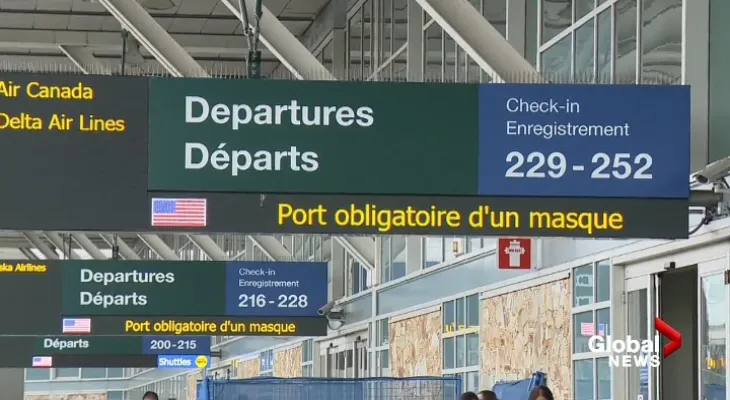Search here
Newspaper
Search here

Arab Canada News
News

Published: September 24, 2022
Calgary attracted 500,000 visitors in 2021 after a year of pandemic isolation, which was summarized as the "best summer ever" by Alberta Premier Jason Kenney.
Kenney had announced that Alberta "crushed" the surge of COVID-19 infections, declaring the return of backyard barbecues, weddings, and concerts as well.
After months of what was known as Kenney's "mission accomplished" moment, Alberta was hit by a violent wave of Delta, devastating the province's intensive care units and causing many deaths, where that moment left a lasting impression on the country's political psyche.
Such a jubilant announcement, albeit premature, is unlikely to reappear in Canada's response to COVID-19, even as other world leaders seem ready to leave the pandemic behind. Last week, U.S. President Joe Biden said: "The pandemic is over," walking the blue carpet at the Detroit Auto Show in Michigan during an interview with the program "60 Minutes." The president added that there is still work to be done, but he indicated that the crisis has passed.
Prime Minister Justin Trudeau also said on Thursday at a press conference at the United Nations General Assembly in New York: "What we have consistently seen is that people are still suffering in hospitals across our country from the effects of COVID." He encouraged people to get the latest booster vaccine doses and reassured the public, "We will make sure this pandemic leaves us as soon as possible."
Two senior government sources, speaking on condition of anonymity because they were not authorized to speak publicly, told The Canadian Press that Trudeau had agreed in principle to allow Canadian vaccine passports on September 30. However, this will pose a challenge for the government, they said, because the country is still recovering from the pandemic's impact so far, making the phase of easing travel restrictions a sensitive stage that must be studied very carefully so as not to leave negative effects on Canada in the near future.
Comments